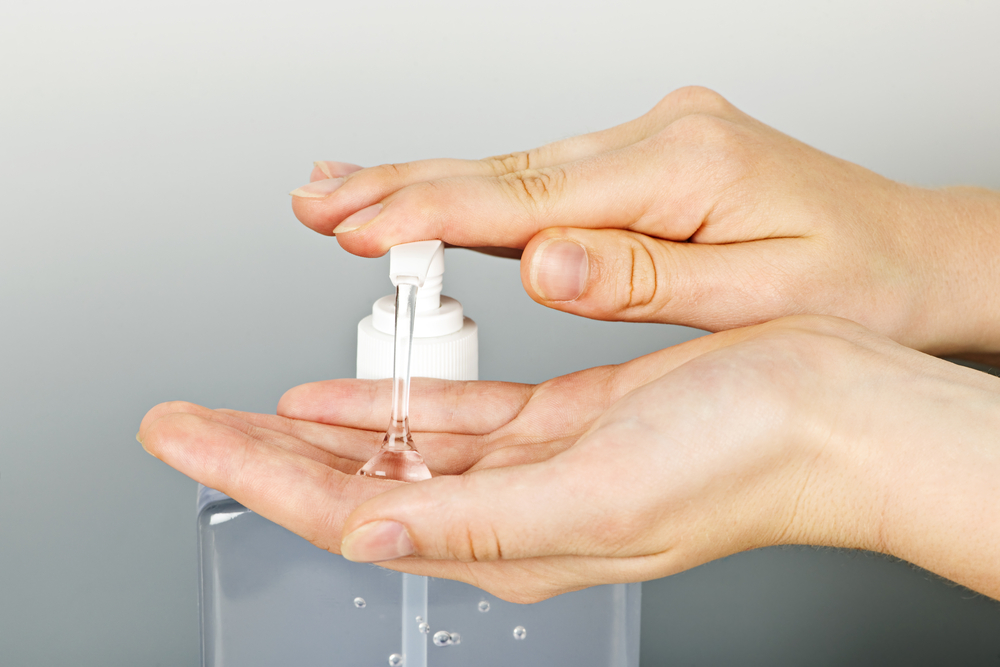5 Experts Answer: Does Antibacterial Gel Work as Well as Washing Your Hands?

Each week, MyHealthNewsDaily asks the experts to answer questions about your health.
This week, we asked infectious disease specialists: Does using antibacterial gel work as well as washing your hands?
Dr. Rachel Orscheln, a pediatric infectious disease expert at Washington University School of Medicine in St. Louis:
According to the CDC, "Washing hands with soap and water is the best way to reduce the number of germs on them."
However, alcohol-based hand sanitizers can also be very effective in cleaning the hands if the hands are not visibly dirty. Proper technique should be utilized when using alcohol-based hand sanitizers.
A product should be chosen that contains at least 60 percent alcohol. A sufficient amount of product should be applied to the hands to allow coverage of all surfaces of the hand and fingers. The hands should be rubbed together until they are dry. Using alcohol-based hand sanitizers can quickly reduce the number of most germs on the hands.
Carol McLay, RN, Infection Prevention Consultant in Lexington, Ky.
Sign up for the Live Science daily newsletter now
Get the world’s most fascinating discoveries delivered straight to your inbox.
Frequent hand washing is the best way to keep yourself healthy and to prevent the spread of illness. The most effective way to wash your hands is with plain old soap and water.
Hands should be washed: Before, during and after preparing food; before eating or drinking; before and after caring for someone who is sick; before and after touching a cut or wound; after using the toilet; after changing diapers; after blowing your nose, coughing or sneezing; after touching an animal or animal waste; after touching garbage.
While antibacterial gels can quickly reduce the number of germs on your hands, they do not eliminate all types of germs.
If soap and water is not available however, antimicrobial gels are the next best thing.
Dr. Richard T. Ellison III, professor of medicine and molecular genetics & microbiology at University of Massachusetts Medical School
I would answer 'Yes and No.' An antibacterial hand gel can substitute for hand washing when there is no organic material (e.g. dirt) on an individual's hands. The alcohol antibacterial preparations are highly effective at killing bacteria and viruses, but only if there is direct contact of alcohol with the microorganisms. So, if there is a lot of dirt on the hands, the antibacterial hand gel may not reach the microorganisms under the dirt.
In addition, the antibacterial hand gels will not remove the dirt. So, if you can see or feel some dirt on your hands, it's best to wash with soap and water. Soaps can help break down organic material and putting your hands under water will then rinse it away.
Katie Brewer, Senior Policy Analyst in the American Nursing Association's Department of Practice and Policy
The best practice is to not use the antibacterial gel for any routine hand washing in the bathroom, in the kitchen, etc.
But you can, for normal every day situations where you cannot wash your hands, use antibacterial gel as a substitute.
The key to any kind of disinfecting substance is really in the technique. Alcohol works by friction. So you really need to vigorously rub your hands together to disinfect your hands. You may see people rub it in like lotion and that may sometimes work, but not always.
When washing your hands, use soap and water and rub them together for 20 seconds. And, antibacterial soap works just as well as old fashioned soap. In some studies the chemical triclosan in antibacterial soap was found to be somewhat harmful in the environment. The American Nurses Association offices have removed it since it's no more effective.
Dr. David Hooper, chief of the Infection Control Unit at Massachusetts General Hospital in Boston
Antibacterial hand gels – most of them that are on the market are alcohol based – are the same as hand gels that are used in hospitals. Hand gels are used preferentially because they are easy to use and they are quick. Studies have shown they have faster antibacterial activity than soap and water.
Hospitals turned to antibacterial gel because you have an issue with soap and water: it takes time and soap and water, if done multiple times a day, can be drying to the skin, especially in winter months.
Outside of the health care community, for you and I in daily activities, soap and water should be just fine because you won't be using it as often and it won't dry out your skin.
Soap and water removes a large amount of bacteria and alcohol does this even better, but its the difference between 99 and 99.9 percent [bacteria killed].
Some people out in the community have gels that they keep in their purse or bag that they use when they're in situations were they can't wash their hands. I think it's a good idea.











